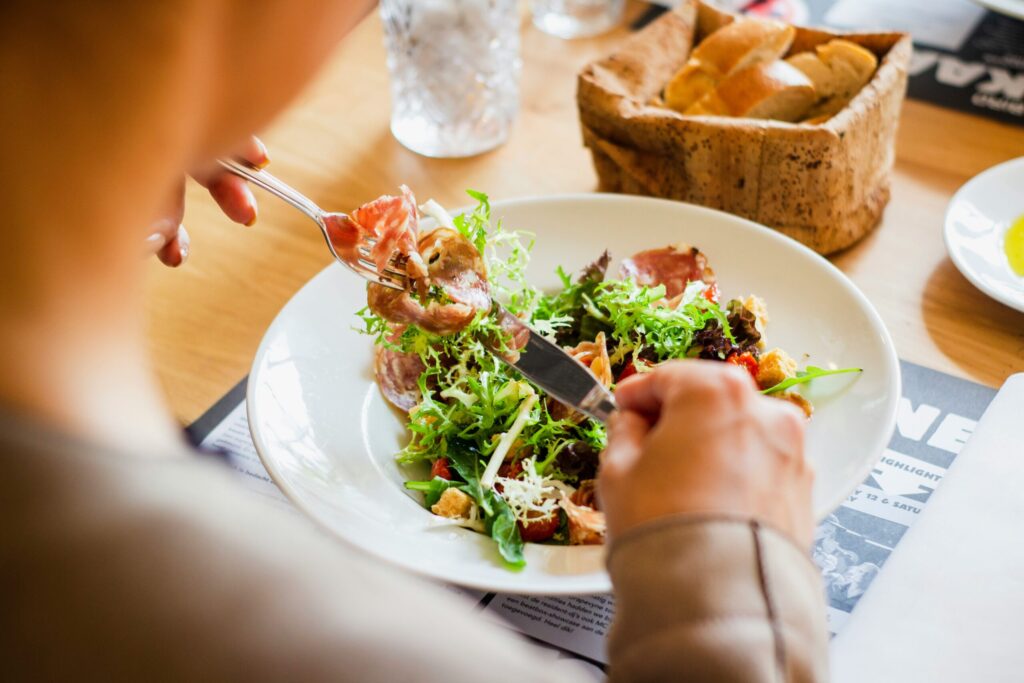GLP-1 medications have gained popularity as effective treatments for weight management. Because these medications impact digestion and appetite, food choices are crucial for success. Understanding what to eat and what to avoid while taking GLP-1 medication can help enhance benefits and minimize side effects.
Understanding GLP-1 Medications and Their Impact on Digestion
Glucagon-like peptide-1 (GLP-1) receptor agonists, such as semaglutide (Wegovy) and liraglutide (Saxenda), work by mimicking a natural hormone that regulates blood sugar levels, slows digestion, and signals fullness to the brain, helping to control appetite and promote weight loss. This results in reduced appetite, longer satiety, and, for some, mild to moderate gastrointestinal symptoms, including nausea, diarrhea, and constipation. Because of these effects, choosing the right foods is essential for supporting digestion and maximizing the benefits of GLP-1 medications.
Best Foods to Eat While Taking GLP-1 Medication
A balanced diet may help mitigate side effects while supporting overall health. Research suggests that high-protein and fibre-rich diets may help counteract gastrointestinal discomfort and support metabolic function while taking GLP-1 medications. Additionally, hydration and healthy fats contribute to maintaining digestion and nutrient absorption, reducing nausea and bloating associated with these drugs. The following foods are particularly beneficial:
1. Lean Proteins : Protein supports muscle mass and satiety, helping prevent excessive muscle loss during weight loss.
- Poultry
- Fish (salmon, cod, tuna)
- Eggs
- Tofu and tempeh
- Greek yogurt
2. Fibre-Rich Foods : Fibre aids digestion and promotes gut health, helping reduce nausea and support sustained energy levels.
- Oats and quinoa
- Leafy greens (spinach, kale, arugula)
- Beans and lentils
- Berries (blueberries, raspberries, blackberries)
- Chia and flaxseeds
3. Healthy Fats : Moderate healthy fats can promote satiety and support heart health.
- Avocados
- Nuts (almonds, walnuts)
- Seeds (pumpkin, sunflower)
- Olive oil and flaxseed oil
- Fatty fish (salmon, sardines)
4. Hydration and Water-Rich Foods : Since GLP-1 medications slow digestion, drinking plenty of water is essential to prevent constipation and discomfort. Hydrating foods can also help maintain fluid balance.
- Water (aim for at least 8 glasses a day)
- Herbal teas
- Cucumber and celery
- Watermelon
- Bone broth
- Coconut water
Foods to Avoid While on GLP-1 Medication
Some foods can exacerbate side effects such as nausea, bloating, or digestive discomfort. It’s best to limit or avoid:
1. Highly Processed and Sugary Foods : These can lead to blood sugar spikes and increase the risk of gastrointestinal upset.
- Sugary drinks and sodas
- Candy and pastries
- White bread and refined grains
- Ultra-processed snacks (crisps, fast food)
2. Highly Processed and Sugary Foods : These foods are harder to digest and can worsen nausea.
- Fried chicken
- French fries
- Fast food burgers
- Heavy cream-based sauces
3. Carbonated and Alcoholic Beverages : These can cause bloating and discomfort due to delayed gastric emptying.
- Soda
- Beer
- Sparkling water (for some individuals)
- Alcohol (as it may interfere with medication efficacy)
4. Large Portions and Overeating
Even healthy foods in excessive amounts can cause discomfort due to the slower digestion process. Eating smaller, balanced meals throughout the day is recommended.
Why Choosing the Right Foods Matters
Since GLP-1 medications alter digestion and appetite, maintaining a nutrient-dense diet is crucial for preventing deficiencies and supporting long-term health. This is something you need to consider, as prioritizing protein, fibre, and healthy fats helps sustain energy levels and muscle mass, while avoiding processed foods minimizes digestive issues. Proper food choices also play a role in maximizing the medication’s effectiveness, ensuring sustainable weight management and improved metabolic health.
Research-Based Practical Tips for Eating on a GLP-1 Regimen
- Eat slowly and mindfully to prevent discomfort and nausea.
- Only eat when truly hungry to avoid overeating.
- Monitor portion sizes to accommodate slower gastric emptying and opt for smaller, balanced meals.
- Avoid distractions while eating and focus on savoring your food to aid digestion.
- Increase meal frequency with smaller meals rather than large portions.
- Avoid lying down immediately after eating to prevent digestive discomfort.
- Avoid using straws, as they can introduce excess air into the stomach and cause bloating.
- Avoid being too active after meals, allowing time for digestion.
- Ensure meals are not too close to bedtime to support better digestion.
- Keep a food journal to track which foods work best for your digestion and energy levels.
- Get fresh air and engage in light exercise to support overall well-being and digestion.
- glpConsult a dietitian or healthcare provider to personalize your dietary plan.
How Certain Foods Can Enhance GLP-1 Secretion
Research indicates that specific foods can naturally enhance GLP-1 secretion, supporting appetite regulation and digestion. Healthy fats and fiber-rich foods play a key role in optimizing the body’s GLP-1 response.
A study in Nutrition and Metabolism found that olive oil and avocados significantly boost GLP-1 secretion, promoting satiety and improved glucose metabolism. Additionally, high-fibre foods like whole grains and legumes have been shown to elevate GLP-1 levels, aiding digestion and blood sugar regulation.
GLP-1 medications are powerful tools for weight management and metabolic health, but their effectiveness depends largely on dietary and lifestyle choices. Focusing on whole, nutrient-dense foods while maintaining an active lifestyle and managing stress can help maximize benefits and minimize side effects. As these medications are still relatively new, further research is needed to refine dietary and lifestyle recommendations, but current evidence highlights the importance of a balanced, mindful approach to overall well-being. Making informed food choices while taking GLP-1 medication ensures a smoother experience and supports long-term health.
